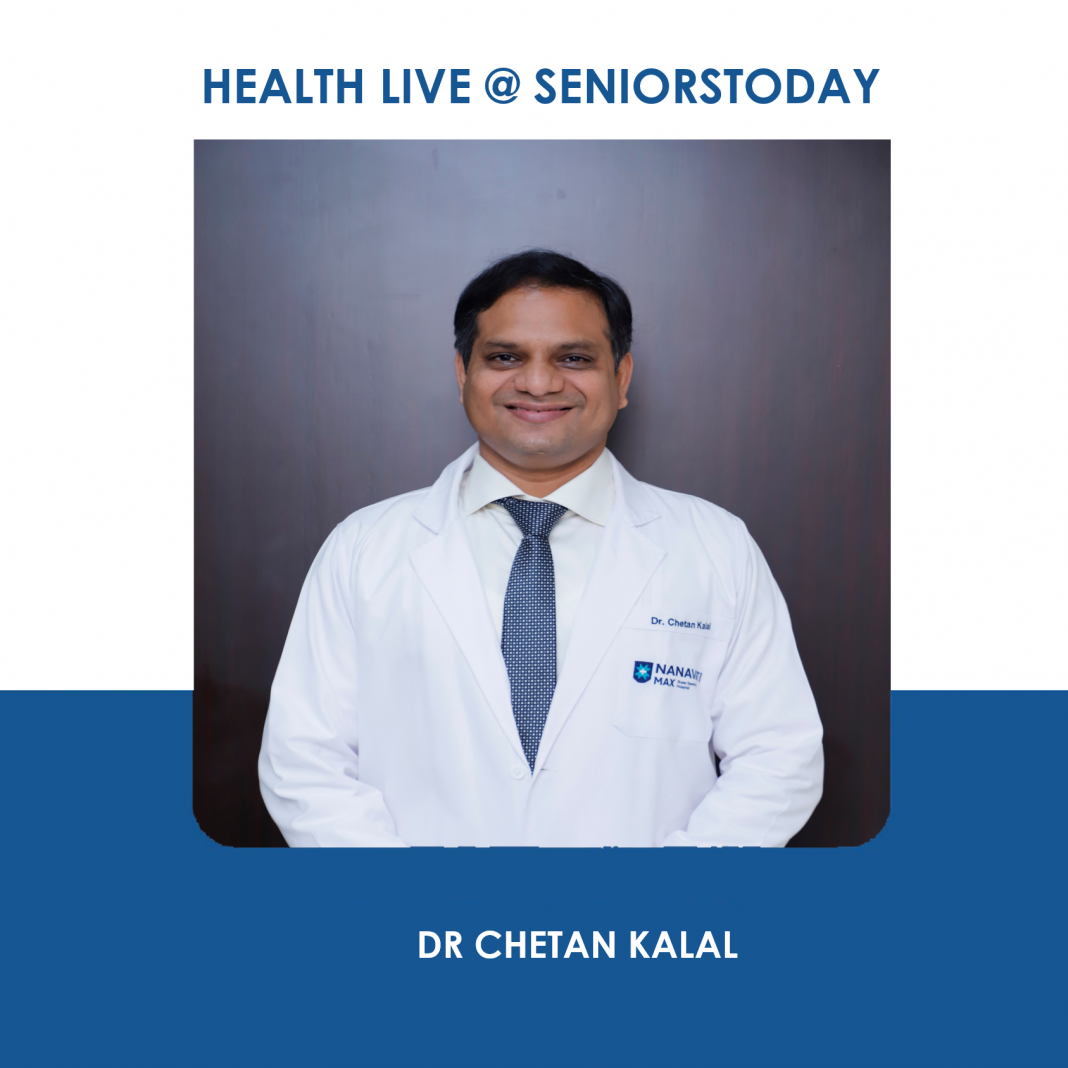On 17 Sep, 2022, Health Live@Seniors Today hosted Dr Chetan Kalal, leading liver specialist who spoke on and answered questions about Liver Care for Seniors.
Dr Chetan Kalal is Programme Director – Hepatology & Transplant Medicine, Nanavati Max Institute of Liver, Pancreas & Intestine Transplantation. Well-known as one of the best liver specialists in the country, he has been recipient of several awards including the coveted AASLD Foundation Award 2016 and 2017.
Dr Chetan Kalal has published over 20 original articles in International and national journals, He has been involved with several International clinical trials on new drug development with presentations in international and national meetings and publications in peer reviewed journals.
Every second person living in India is suffering from some grade of fatty liver disease of which he is not aware.
Every 20th individual in India is suffering from swelling in the liver.
Liver diseases are the 10th commonest causes of death in India.
28 July is observed as World Hepatitis Day and 19 April as International Liver Day.
Liver acts as a first filter, the first barrier / gate stop. Which is why everything you eat, breathe and consume has a direct impact on your liver.
It performs a variety of complex functions daily.
Some of its common functions include:
- It helps in digestion
- It helps in secretion of enzymes that help in the digestion of fatty acids
- It helps in the production of proteins, which are also the building blocks of our body.
- It helps in the metabolism of glucose, lipids; and so on
Hepatitis is the inflammation of the liver. The causes for hepatitis can be divided into 2:
- Virus related
- Hepatitis A
- Hepatitis B
- Hepatitis C
- Hepatitis D
- Hepatitis E
- Non- virus related
- Fatty liver disease/ Non alcoholic fatty liver disease (NASH)- the most common cause for hepatitis in the world
- Alcoholic hepatitis
- Autoimmune and genetic condition
- Over the counter hepatotoxic drugs such as paracetamol , ayurvedic medication
If hepatitis is not diagnosed early on, it can eventually lead to liver damage. It can also further progress and lead to the formation of scar which is called liver cirrhosis. They can also develop cancer, failure of liver function and all of this might lead to an urgent requirement of a liver transplant.
Features of viral hepatitis:
- Fever
- Joint pain
- Generalised body weakness; all of these are non- specific symptoms
- You might slowly develop jaundice- which is yellowish discolouration of eyes and skin
- Nausea/ vomiting
- Fatigue
- Pain in the right upper quadrant
Symptoms can be non- specific, they can be specific or there can be no symptoms at all.
Hepatitis A and E are food and water borne hepatitis.
Hepatitis B and C are transmitted via contaminated blood and fluids.
Hepatitis A and B can be prevented with vaccination. However there are no vaccines for hepatitis C, D and E.
Binge drinking and heavy drinking is a risk factor for alcoholic hepatitis.
Alcohol in any amount is harmful.
Obesity, diabetes, dyslipidaemia form metabolic syndrome and can further lead to damage to the liver.
You can calculate your ideal body weight by a simple formula, which is- Height (in cm) -100
If you are overweight, you should then try to lose that weight- lose 10% of your body weight in the next 3 months. If you lose 5% there will be improvement in the fat. If you lose 7% there will be improvement on the inflammation of liver
If you lose more than 10%, then you can also improve your fibrosis upto certain extent can improve.
Avoid preserved/ oily/ spicy/ caffeinated food items.
Increase your protein intake.
Coffee has been shown to have a positive effect on the liver.



